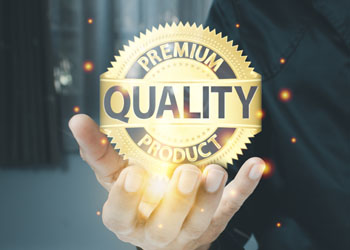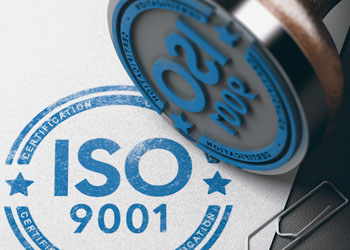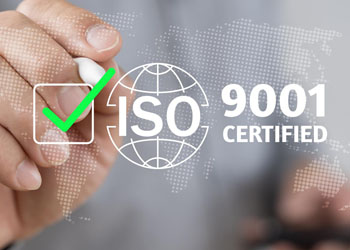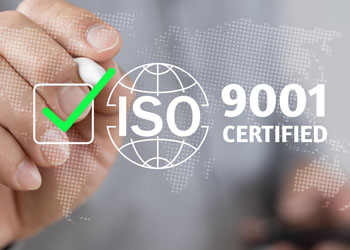Corporate Excellence Management Program and EFQM Standards Application
Course Overview
Corporate excellence is one of the fundamental pillars for achieving success and sustainability in modern organizations. The European Foundation for Quality Management (EFQM) model relies on a set of standards that help organizations improve their performance, increase their effectiveness, and achieve the best results.
This program aims to equip participants with the knowledge and skills required to apply EFQM standards within their organizations, contributing to enhancing their ability to innovate and achieve excellence in organizational performance.
Through this program, organizations will be able to improve the quality of their services and products, increase customer satisfaction, and strengthen their competitive capability both locally and globally.
Course Objectives
- Deepening the understanding of the EFQM Excellence Model standards and effectively applying them to achieve continuous improvement.
- Developing the ability to conduct self-assessments based on EFQM standards to identify strengths and areas for improvement.
- Enhancing strategic planning skills to achieve organizational excellence through the implementation of the EFQM model.
- Gaining change leadership skills to ensure the adoption of a culture of excellence within the organization.
- Improving the ability to prepare reports and provide recommendations to enhance organizational performance according to EFQM standards.
Target Audience
- Quality Managers and those responsible for organizational excellence within institutions.
- Executives and decision-makers striving to improve organizational performance.
- HR Managers aiming to foster a culture of excellence within the organization.
- Management Consultants providing solutions for improving organizational performance.
- Employees working in Strategic Planning and Organizational Development departments.
Course Modules
Concepts and basics of institutional excellence according to EFQM
- Introduction to Institutional Excellence : Definition of excellence and its importance in modern institutions.
- The EFQM Excellence Model : Understanding the model structure and its core criteria.
- Benefits of institutional excellence : How excellence contributes to improving institutional performance.
- The link between institutional excellence and strategy : integrating excellence into the organization’s strategic plans.
- Self-assessment and its importance : How to use self-assessment to analyze the current situation and identify points for improvement.
Applying EFQM standards in organizations
- Understanding the EFQM Core Standards : An overview of the standards and their applications in organisations.
- Self-assessment and development : How to conduct self-assessment and use it to develop performance.
- Analyzing Results and Developing Improvement Plans : How to analyze evaluation results and identify improvement priorities.
- Improving corporate processes : Applying EFQM standards to improve processes and activities.
- Ensuring compliance with EFQM standards : How to ensure ongoing compliance with the standards.
Leading Change to Achieve Institutional Excellence
- The role of leadership in achieving excellence : The importance of leadership in adopting a culture of excellence.
- Managing Organizational Change : Strategies for Implementing Change and Achieving Excellence.
- Motivating and guiding teams towards excellence : Strategies for motivating teams to achieve excellence.
- Promoting a culture of excellence in the organization : How to build and promote a culture of institutional excellence.
- Innovation Management and Continuous Improvement : The Role of Innovation in Achieving Institutional Excellence
Preparing reports and making recommendations according to EFQM standards
- Developing Self-Assessment Reports : How to prepare accurate reports that reflect assessment results.
- Making Recommendations and Preparing Action Plans : How to make effective recommendations that support improvement.
- Using Results to Improve Performance : How to Use Assessment Results to Boost Performance.
- Monitoring and evaluating improvements : Tools and methods to track improvements and ensure their sustainability.
- Learning from best practices : Review examples of successful organizations implementing EFQM standards.
Practical applications and case studies for institutional excellence
- Review of successful case studies : Analysis of examples from organizations that have achieved organizational excellence.
- Practical application of self-assessment : Workshops to apply self-assessment according to EFQM.
- Analysing and evaluating excellence results : How to evaluate improvements based on EFQM criteria.
- Discussing challenges and solutions : Strategies for overcoming challenges in implementing institutional excellence.
- Developing a plan for future development : How to develop a plan for long-term improvement in excellence.
Instructor
Name: Dr. Haitham Al-Ruby
Specialization: Financial Consulting, Accounting, Auditing, and Financial Restructuring
Certificates: PhD in Financial Accounting (Helwan University) MBA in Finance and Banking Institutions (Edinburgh Napier University, UK)
Core Programs Trained: Internal Auditing Money Laundering and Counter-Terrorism Management Financial Contracts Management Financial Analysis and Risk Management
Bio: Financial consultant and expert in auditing and financial restructuring, with over 20 years of experience in designing financial and accounting systems and providing consulting to companies and banks. He has trained in more than 19 countries in the fields of accounting, internal auditing and risk management, and holds key consulting roles in prestigious financial institutions. In addition, he has published numerous research papers and articles and participated in international conferences on accounting and financial standards.
- Languages: Arabic
- Program Levels: Executive Management Level
- Venue: Company Headquarters
- Hours: 20
- Location:











